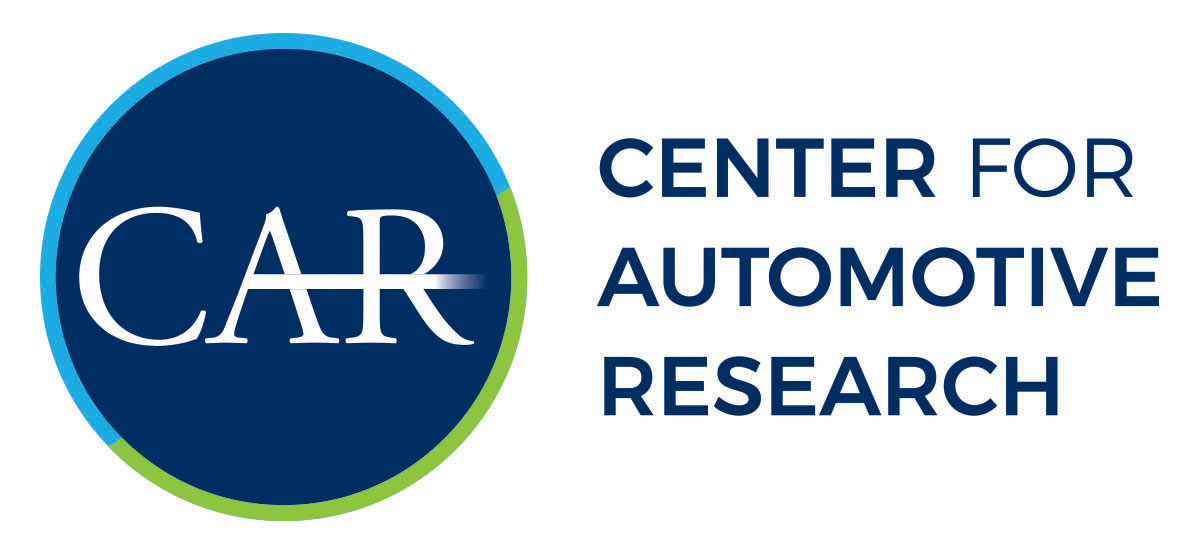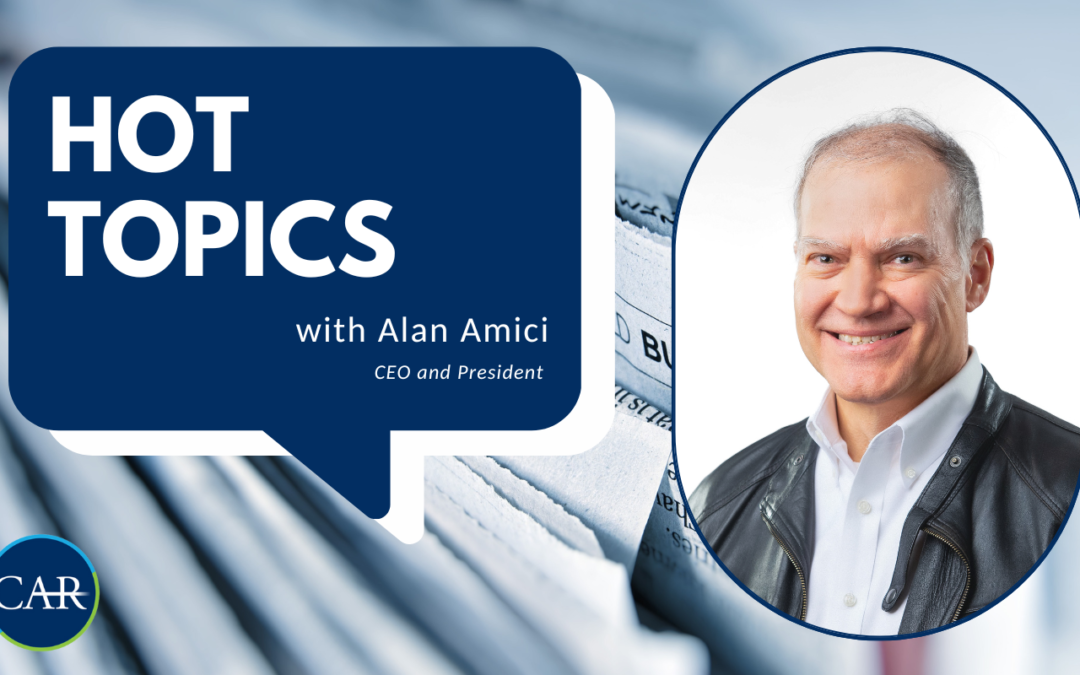Automotive Industry Hot Topics with CAR President and CEO, Alan Amici – (10/20/2023)
On a bi-weekly basis, the Center for Automotive Research (CAR) welcomes our audience to decompress with our President and CEO, Alan Amici, as he covers and shares his thoughts on the latest Hot Topics happening in the automotive industry. If you would like to receive this bi-weekly insight into critical industry issues you and your organization are facing, sign up for our mailing list here to get Hot Topics sent directly to your inbox.
EV Charging & Trucking:
- Hyundai and Kia to adopt Tesla’s EV charging tech next year
- Tesla Semi outperforms rivals in a real-world test
- Mercedes unveils long-haul electric truck to take on Tesla
- 2024 Kia EV9 will top out at 304 miles of range
Alan’s thoughts:
Add Hyundai and Kia to the list of Tesla-compatible EV chargers. This is further acknowledgment that OEMs view access to charging stations as one of the key accelerators of EV sales. While flying under the radar, EV trucking continues to progress as Tesla, Daimler Trucks, and Volvo, among others, will be offering commercially available long-haul trucks. With surprising range and higher–than–expected payload capacity, EV trucking is becoming viable. Looking to Europe for inspiration, long–haul trucking will need higher power charging stations than its passenger car cousins. Look for EV battery innovation to be co-fueled by trucking and passenger car segments, with consumers as the long–term beneficiaries.
Advances in Hydrogen:
- Hydrogen Hub Prototype In Norwegian Fjords. Nordic Notes
- This Company Is Turning Waste Into Clean Hydrogen. And Electricity. And Water.
- Biden, energy secretary to unveil $7 billion hydrogen hub projects
- Michigan-backed hydrogen hub gets up to $1B from feds
Alan’s thoughts:
Clean hydrogen production in the US is moving from concept and proposal to implementation. Toyota’s hydrogen hub at the LA port is expected to go on-line in 2024, while recent Biden administration grants are funding H2 hubs in the mid-west. This is an encouraging sign as our experience from EVs shows that a charging (or refueling) infrastructure is important to new technology adoption. Learning from Norway can help reduce the friction associated with the new technology adoption curve.
Connected Vehicle Systems Alliance (COVESA):
- COVESA Looks To Topple Auto Software Tower Of Babel
- General Motors Open Sources Interfaces For New Software Platform
Alan’s thoughts:
Standardization – an achievement long sought by engineers to reduce product development effort and improve time to market, has proven difficult to realize. There are a few success stories like the diagnostic codes used throughout the industry by dealers and repair shops to identify system faults and guide technicians servicing vehicles. Software standardization, or in this specific case, digital signal definitions and interfaces, has been OEM-specific, defined and developed uniquely by engineers following company-specific design methodologies. Zooming out, some industry experts are examining how OEM-specific operating systems and architectures could impact the software ecosystems that underpin the industry. By seeking non-competitive standardization, the industry can reduce rework and improve time to market. Of course, this is voluntary and hence, the challenge that organizations like COVESA face. However, non-competitive standardization is one path toward a more efficient software ecosystem that will benefit the OEMs, suppliers, and consumers.

Alan Amici
President & CEO
Get our feature stories straight to your inbox.
Join our email list today and never miss our feature stories, publications, and event news.

